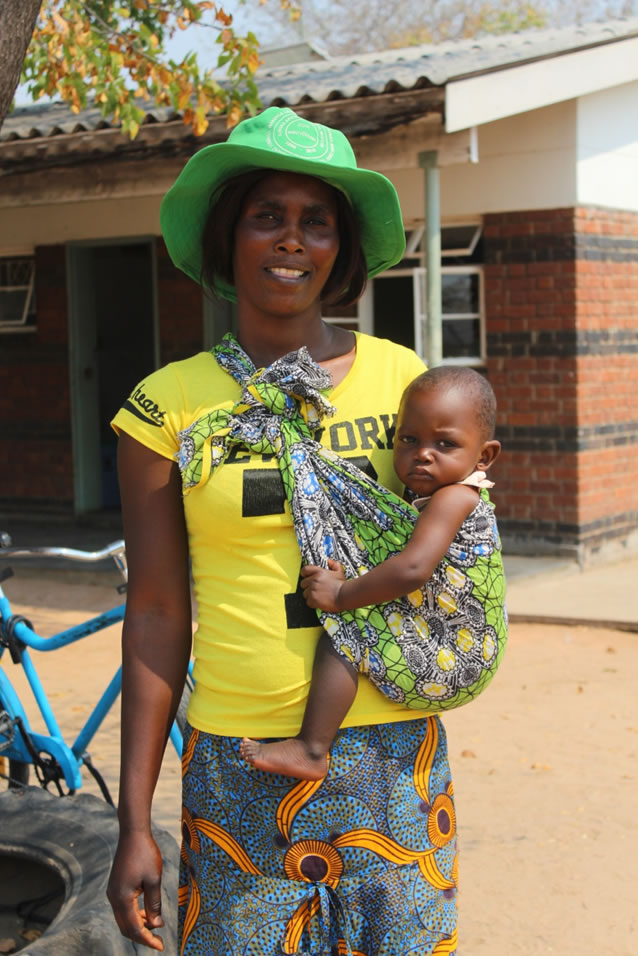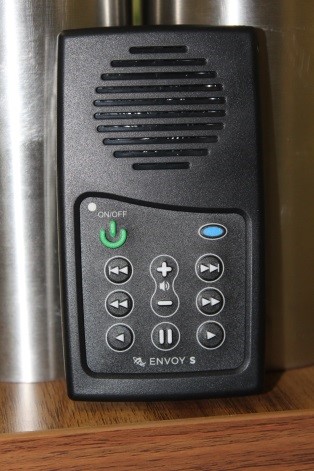In the audiobook Dipa la malaria, the protagonists are a fictional young couple whose infant is sick with malaria. Throughout the story, Gigina and his wife Tirewenyi find themselves in a difficult situation when their five-year old child develops malaria and the infection gets complicated due to late treatment. On their journey to and from the clinic, they meet intriguing situations and yet get to learn a comprehensive lesson about malaria prevention, control and treatment and get educated on the expected correct behaviors.
Dipa la malaria was especially created for – and with contributions by – the Chapoto community of Northern Zimbabwe. The drama describes challenges familiar to the community and highlights how these difficulties could be overcome. Lead by Zimbabwe Assistance Program in Malaria (ZAPIM) with funding from the U.S. President’s Malaria Initiative (PMI), the project has equipped Chapoto with fifty easy-to use solar-powered devices that play the 20-minute educational stories. Dipa has brought a noticeable change by starting to shift norms such as influencing the health-seeking behavior of the community.
In Chapoto, losing babies to fever was once viewed as an unavoidable and a common occurrence. This was due in part not only to high malaria rates, but lack of knowledge on the various causes of illness and a deep-seated belief system that led the community to under-utilize the health facility and treatment services availed to them. In particular, families believed that the main cause of fever and convulsions in babies was witchcraft.
Prevention and control of malaria in Chapoto ward is through indoor residual spraying, distribution of mosquito nets (LLINs), treatment of malaria cases, and prevention of malaria amongst pregnant women. However, communication materials to support these efforts is hard to circulate in Chapoto because literacy rates are low and the majority of the residents in the community near the borders of Zambia and Mozambique speak Chikunda, while most malaria education materials in Zimbabwe are in English or Shona.
“Dipa is good for us,” young mother Serina Karerahonye says of the Chikunda language audiobook. “We used to bury our babies because we thought illness was caused by the heat (high temperatures) in our area. We have learned that we have to quickly go to the clinic or hospital before children develop convulsions if they are ill.”
Therefore, the ZAPIM project set out to create a Chapoto-language program using scenarios of illness and difficulty met in the community, and highlighting how these difficulties could be overcome. The name Dipa la malaria means “the spear to fight (and eliminate) malaria for good” in Chikunda. The idea for using an audiobook was inspired by the community’s use of an audiobook Bible.
Regular community members were involved in the design and packaging of the communication message and they took acting roles in the edutainment story. These actors and the traditional community leadership are the advocates for Dipa la malaria.
Within a short time after its introduction, the audiobook was hugely popularized amongst all age groups. There has been a clear shift towards better understanding and willingness to act and seek treatment at the clinic.
On being asked if they think that the Chikunda audiobook has increased knowledge about malaria in the village, 90.5 percent of survey participants said yes.
A community member from the Doma ethnic group said the knowledge gained through listening to the audio made her feel educated enough to converse with other women who can read on equal terms.


